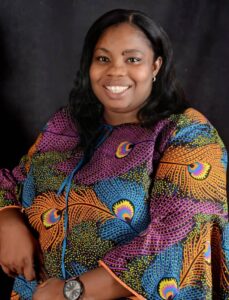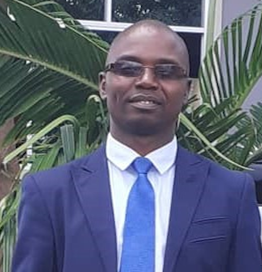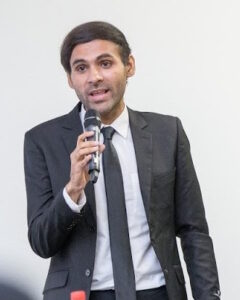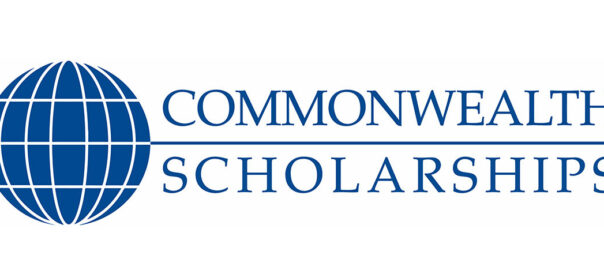
Do you have a serious interest in online teaching, technology-enhanced learning and educational technology?
Would you like to gain a Master’s degree with one of the UK’s leading providers of digital education, for study commencing in February 2026? Are you a citizen of one of the following developing Commonwealth countries, a refugee from one of the following countries, or a British Protected Person?
Bangladesh, Belize, Botswana, Cameroon, Dominica, Eswatini, Fiji, Gabon, The Gambia, Ghana, Grenada, Guyana, India, Jamaica, Kenya, Kiribati, Lesotho, Malawi, Malaysia, Maldives, Mauritius, Montserrat, Mozambique, Namibia, Nauru, Nigeria, Pakistan, Papua New Guinea, Rwanda, Saint Helena, Saint Lucia, Saint Vincent and the Grenadines, Samoa, Sierra Leone, Solomon Islands, South Africa, Sri Lanka, Tanzania, Togo, Tonga, Tuvalu, Uganda, Vanuatu, Zambia
Are you permanently resident in one of the above countries?
The Open University’s Institute of Educational Technology (IET) has been awarded 10 fully funded Commonwealth Distance Learning Scholarships for citizens of the countries listed above who wish to study IET’s Masters in Online Teaching (MAOT). We are pleased to invite applications for these scholarships.
The closing date for applications is 16.00 (GMT) on Tuesday 20 May 2025.
These Scholarships are funded by the UK Foreign, Commonwealth & Development Office (FCDO) and are intended to contribute to the development needs of Commonwealth countries by enabling talented and motivated individuals to access training and skills required for sustainable development by undertaking part-time Masters study with UK universities while remaining in their home countries.
Intended beneficiaries
High-quality candidates from eligible Commonwealth countries who wish to access training not available in their home countries, who wish or need to remain in their home country while they study, and who have the potential to enhance the development of their home countries with the knowledge and leadership skills they acquire.
About the Masters in Online Teaching
The Open University’s Masters in Online Teaching (MAOT) is studied entirely online. The MAOT develops skills in the theory-informed design of technology-enhanced, blended and online learning. The MAOT is designed to address educational inequity in all its forms and, as such, is relevant to achieving inclusive, high quality, equitable blended and online education. The Commonwealth Distance Learning Scholarships are for three years’ part-time distance learning, commencing in February 2026. The scholarships will cover the full cost of tuition fees but no other expenses.
It is likely that Commonwealth Distance Learning Scholarship holders will study the following modules, in the order stated. However, there may be some variation in the exact content offered.
Stage 1 – February-October 2026:
- Compulsory module H880 Technology-enhanced learning: foundations and futures.
Stage 2 – October 2026 – September 2027
60 credits from the following 15-credit microcredentials, currently presented twice annually:
- Online teaching: Evaluating and improving courses.
- Teacher development: Embedding mental health in the curriculum.
- Online teaching: Accessibility and inclusive learning.
- Online teaching: Embedding social, race and gender-related equity.
- Online teaching: Addressing the climate emergency (first presentation date to be confirmed).
Stage 3 – October 2027 – May 2028:
- Compulsory module H890 Research and scholarship in digital education. This module develops skills in critically evaluating and conducting digital education-related research and scholarship and is suitable preparation for future doctoral study.
Who can apply?
To be eligible for a Commonwealth Distance Learning Scholarship to study the Masters in Online and Distance Education you must:
- Be a citizen of, or have been granted refugee status by one of the eligible developing Commonwealth countries listed above, or be a British protected person; and
- Be permanently resident in one of the eligible developing Commonwealth countries listed above; and
- Hold a first degree of at least upper second class (2:1) standard. A lower qualification and sufficient relevant experience may be considered in certain cases; and
- Be unable to afford to study the programme without this scholarship.
You will also need access to a computer with reliable broadband internet access. You do not need to be working in technology-enhanced learning but you should be interested in developing expertise in this area.
General conditions for the Scholarships are available here: https://cscuk.fcdo.gov.uk/scholarships/commonwealth-distance-learning-scholarships-candidates/.
How to apply
- Visit the Masters in Online Teaching website to find out more about the programme. Do not attempt to register for any of the modules.
- Read the Commonwealth Distance Learning Scholarships Information for Candidates. If you have any questions, please contact IET-OnlineTeaching@open.ac.uk in the first instance, giving the subject ‘2025 Commonwealth Scholarships query’.
- Complete the Commonwealth Distance Learning Scholarship application form by 16.00 (GMT) on 20 May 2025 and submit it online. You should complete all sections of the application form as fully as possible as the form will be the basis for selection of candidates. Pay particular attention to describing in detail how you intend to achieve in-country benefit as a result of your study of the Masters in Online Teaching.






